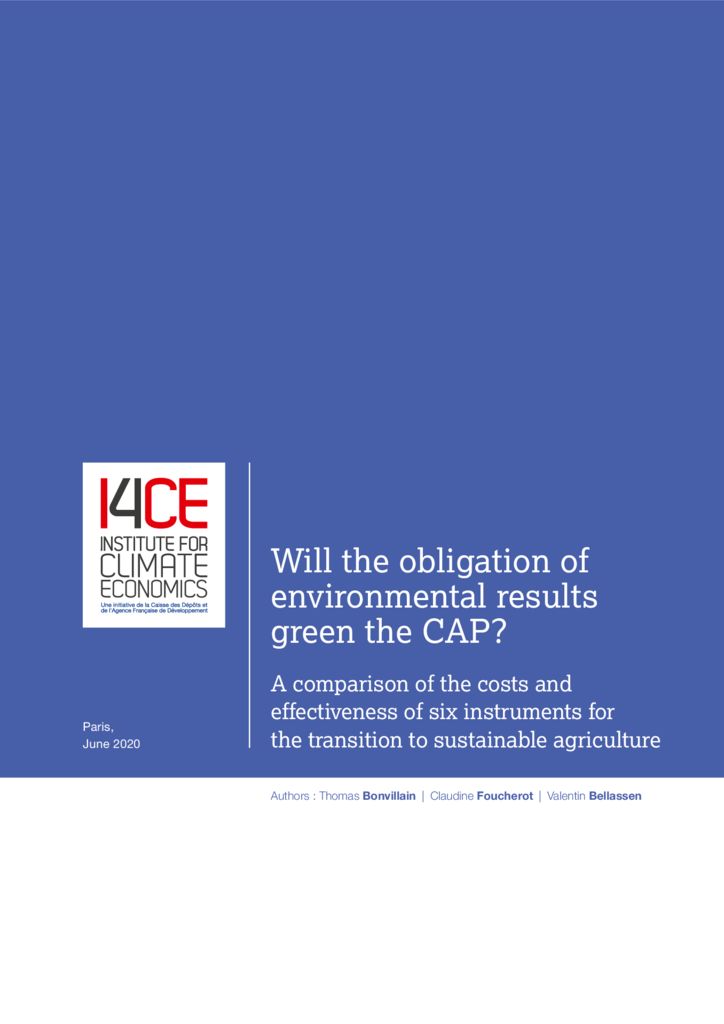Will the obligation of environmental results green the CAP?
One of the main elements of the reform of the Common Agricultural Policy (CAP) for the 2021-2027 exercise is the shift of part of the funding towards an obligation to achieve environmental results. Is that an expensive development? Environmentally effective? In order to answer these questions, this I4CE study analyses numerous mechanisms, more or less oriented towards performance obligation.
First of all, the study shows that the distinction between the obligation of means and the obligation of result, or performance obligation, is too manichean. Pure performance requirements in the environmental field never really exist, the practical examples are placed on a continuum of more or less fine estimated results.
Estimating the costs of six schemes located on this continuum (Green Payment, Agro-Environmental and Climate Measure, aid for conversion to organic farming, High Environmental Value label and two carbon certification standards) then allows several conclusions to be drawn. First of all, the obligation of result is not necessarily more costly than the obligation of means: AECM for example, generally considered as obligations of means, is more expensive to administer than carbon certification frameworks, considered as obligations of results. The genericity of the system plays an essential role, allowing the costs of design and monitoring to be spread over a large number of farmers.
Secondly, with regard to the effectiveness of the instrument in terms of environmental impact, moving towards an obligation of result does not seem to be decisive as such. However, two factors are crucial: the ambition of the scheme and the level of requirement on additionality, for example by making the subsidy conditional on an improvement over an initial state.
Finally, the specific interest of the transition to the obligation of results seems to be the facilitation of the CAP environmental assessment, which would make it possible to redirect subsidies, if necessary, in the light of these impact data which are currently lacking.
The CAP reform opens up the possibility of introducing new types of payments under the 1st pillar eco-scheme and, in particular, carbon certification frameworks. They pay a lot of attention to the issue of additionality. Being neither more costly to put in place nor less effective than a AECM-type instrument, they could make their appearance within the CAP. The example of support for organic farming shows that supporting CAP support on external labels is not without precedent.
Thomas Bonvillain explains, in two minutes, the main lessons of this study. A video to watch in order to understand what the obligation of results under the CAP is and the interest it arouses.
